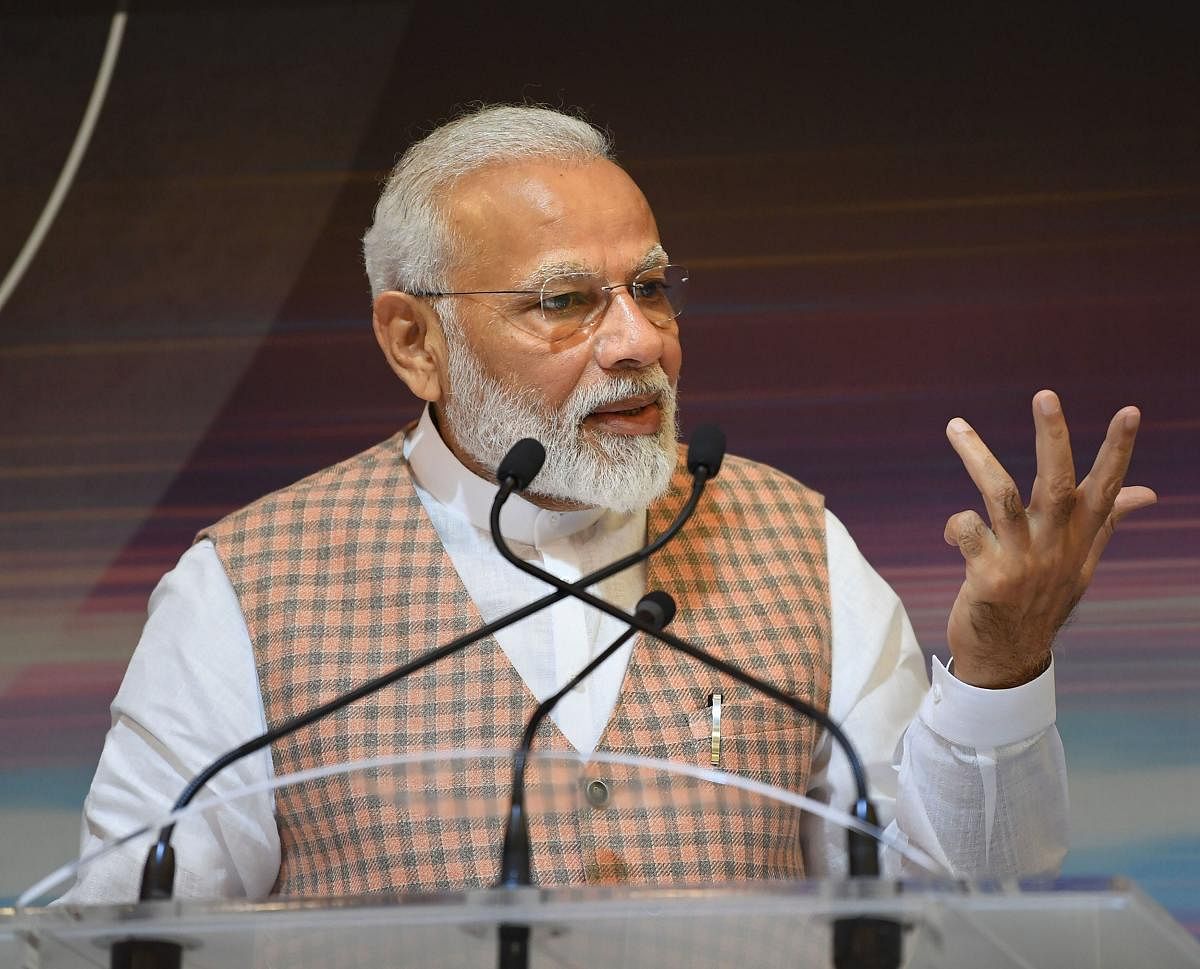
The Sardar Sarovar Dam in Gujarat is expected to reach its full storage capacity soon, a milestone that will be witnessed by Prime Minister Narendra Modi on September 17, which also happens to be his birthday.
The water in the dam, considered as 'Gujarat's lifeline, is likely to touch the full reservoir level of 138.68 m soon, Gujarat Chief Minister Vijay Rupani said.
On Saturday, it reached the height of 138 m, just 68 cm short of the overflow mark.
"Prime Minister Narendra Modi will be present at the dam site to celebrate the feat on September 17, which is also his 69th birthday," Rupani said on Saturday.
"After years of struggle, the dream of Sardar Vallabhbhai Patel (country's first home minister) of the dam on the Narmada river has come true now," he said.
The dam's foundation stone was laid by India's first prime minister Jawaharlal Nehru on April 5, 1961. But, its construction was completed in September 2017, after 56 years.
Due to less rainfall in 2018, the dam remained half empty last year.
"But due to good rains this year, the dam water level is likely to reach its maximum height in the coming days, and the state's people are delighted as their wish of seeing this day is soon going to come true," Rupani said.
"It will be a day of pride for people of Gujarat when the dam will be filled to the brim," Sardar Sarovar Narmada Nigam Limited's Managing Director Rajiv Gupta said.
"We have filled 400 lakes, numerous rivers and even dams in Kutch with the Narmada water through our canal network. This is a water lifeline of Gujarat," he said.
Rupani also earlier dubbed the Sardar Sarovar Dam project as "Gujarat's lifeline", noting that the agricultural income and production by farmers more than doubled due to it.
The dam aims to provide drinking water to 131 urban centres and 9,633 villages (53 per cent of total 18,144 villages in Gujarat) and irrigation facilities for 18.54 hectares of land, covering 3,112 villages in 15 districts.
It is seen as a boon for people of the state's perennially-parched areas like Saurashtra, Kutch and north Gujarat and even few districts of Rajasthan.
Earlier, various reasons delayed its completion.
After its foundation stone was laid in 1961, there was a dispute between Gujarat and Madhya Pradesh on sharing of the Narmada river water and electricity.
To resolve the dispute, the Centre appointed an expert committee under the chairmanship of Dr A N Khosla in 1964.
However, the then Madhya Pradesh government did not agree to share of Narmada water as per Khosla panel report.
Later, the Narmada Water Dispute Tribunal was constituted in 1969 and it gave its final award in December 1979, after which the construction was started in 1980.
But, the Narmada Bachao Andolan (NBA), led by activist Medha Patkar, soon launched an agitation against the dam and took the matter to the Supreme Court over environmental concerns and rehabilitation of tribals whose lands were likely to be submerged under it.
The Gujarat government promised a robust rehabilitation package to the project-affected people, but the NBA did not accept that.
In 1996, the Supreme Court stayed the project, which further delayed the dam work.
On October 18, 2000, the apex court, in a 2-1 majority judgment, allowed construction of the dam up to a height of 138 m, subject to completion of the rehabilitation process.
But even after the court verdict, the construction of the dam faced many hurdles over rehabilitation issues.
In response to the NBA, the pro-dam people of Gujarat also launched many agitations, citing its benefits.
In 2017, the work for raising the dam's height to 138.68 m was completed, which allows maximum 'usable storage' of 4.73 million acre feet of water.